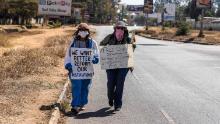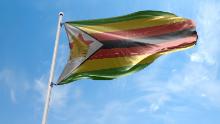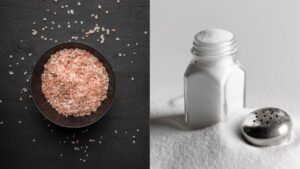Hopewell Chin’ono granted bail in Zimbabwe — with strict conditions

Chin’ono is charged with inciting violence ahead of a planned anti-government protest — a charge his lawyers deny.
He is banned from social media and is not allowed to leave the capital Harare as part of his stringent bail conditions.
The journalist was most recently working on allegations of corruption relating to the procurement of Covid-19 supplies by the health ministry, according to Amnesty International which accused the Zimbabwe government of using state’s security forces to silence critics.
According to the Zimbabwe Lawyers for Human Rights (ZLHR), both men were strip-searched and bound in leg chains before being transferred.
“We are happy that they have been granted bail. But the bail conditions clearly curtail their constitutional rights,” said Doug Coltart, a lawyer with ZLHR who is representing the two men.
Coltart said they are awaiting Covid-19 tests for Chin’ono after he developed symptoms of the virus over the weekend at the prison.
International condemnation
Zimbabweans have been staging solo protests on social media in recent weeks to challenge human rights abuse in the southern African country.
The hashtag has gained momentum with celebrities including rappers, AKA, Ice Cube, actresses Pearl Thusi, and Thandie Newton joining in to call for an end to the human rights abuses in the southern African country.
Award winning author and filmmaker Tsitsi Dangarembga, who was arrested during the demonstrations, encouraged her followers to stage online solo protests and carry placards using the #ZimbabweanLivesMatter hashtag.
The image also added that solo protesters should take pictures with the Zimbabwe flag and placard to post online for awareness.
Some protesters covered their faces or submitted their photos to a trusted account to post on their behalf, out of fear of being targeted by the Zimbabwean government.
Former President of Botswana, Ian Khama also joined the campaign.
In a Facebook post, he called on his followers to pray for Zimbabweans as “the situation is deteriorating every day”.
Human rights abuses
When Chin’ono was first denied bail, the United Nations High Commissioner called for an end to the “pattern of intimidation” seen in Zimbabwe, warning that authorities may be using the coronavirus pandemic as a pretext to “clamp down” on freedom of expression.
“The arrests of Hopewell Chin’ono and Jacob Ngarivhume are designed to intimidate and send a chilling message to journalists, whistleblowers and activists who draw attention to matters of public interest in Zimbabwe,” said Deprose Muchena, Amnesty’s director for east and southern Africa in a statement.
Mnangagwa’s government maintains that there is no human rights crisis in Zimbabwe.
In early August, South African leader Cyril Ramaphosa – who is the current leader of the African Union – dispatched envoys to assess the situation in his neighboring country.
Mnangagwa has responded to critics by promising to “flush out bad apples” trying to divide the country as pressure mounted on the government to stop human rights violations.










